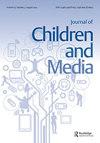Respecting children`s rights in research ethics and research methods
IF 2.1
3区 心理学
Q2 COMMUNICATION
引用次数: 1
Abstract
In this commentary, we reflect on ethical considerations when conducting research with children in sensitive subject areas, especially in digital environments. Using a child rightscentered approach, we argue that we need to use a more holistic approach to ethics that respects different rights of children. When weighing security and safety risks of examining online communication among children, ethical tensions arise between the right to protection and the right to participation. This tension can be addressed by considering ethical criteria throughout the whole research project. We claim that this also might entail a paradigm shift: research ethics should be developed in interdisciplinary teams, and also with children. The goal of child-centered research ethics is to respect children ́s interests and rights by designing appropriate research methods and processes that engage the autonomy of children while increasing the validity of research results and conclusions. From a children ́s rights perspective, the evolution of digital media is providing young people across the globe with new opportunities relating to their rights: new ways of learning reinforce the right to education and information; increasing social connectivity strengthens the right to participate; expanding communication possibilities support the right to express views and be heard; and the access to games and leisure online supports the right to play. Social media platforms like TikTok also provide children with opportunities to express their personal opinion and offer new spaces for political communication. A lack of effective platform regulation and protection of children, however, means that children are prone to not only content-related, but also interactive risks, which only increased during the boost in media consumption during the COVID-19 pandemic. Interactive risks are both a form of contact risks (e.g., when young people interact with unknown others through chats that can lead to security threats like cybergrooming) and conduct risks (when children put others (and themselves) at risk, e.g., when they produce hateful material about others, like in the case of cyberbullying or hate speech). Thus, these risks range from hate speech and disinformation to cybergrooming or cyberbullying, as well as privacy concerns (see 4C model of online risks; Livingstone & Stoilova, 2021). Digital media provide children with opportunities but also make them vulnerable in ways that impact their right to protection, security, and even their right to life, foreclosing their right to an open future (Feinberg, 1980; Stapf, 2022). From a children ́s rights perspective, children are acting subjects who are more vulnerable than adults. They are developing cognitively and emotionally while building their lived experiences. Paternalistic attempts to protect children in research, without involving children themselves in the research process, may interfere with children ́s self-在研究伦理和研究方法方面尊重儿童权利
在这篇评论中,我们反思了在敏感主题领域对儿童进行研究时的伦理考虑,尤其是在数字环境中。使用以儿童权利为中心的方法,我们认为我们需要使用一种更全面的道德方法,尊重儿童的不同权利。在权衡审查儿童在线交流的安全和安保风险时,保护权和参与权之间出现了道德紧张关系。这种紧张关系可以通过在整个研究项目中考虑伦理标准来解决。我们声称,这也可能导致范式的转变:研究伦理应该在跨学科团队中发展,也应该与儿童一起发展。以儿童为中心的研究伦理的目标是通过设计适当的研究方法和过程来尊重儿童的利益和权利,让儿童自主,同时提高研究结果和结论的有效性。从儿童权利的角度来看,数字媒体的发展为全球年轻人提供了与他们的权利相关的新机会:新的学习方式加强了受教育和信息的权利;加强社会联系加强参与权;扩大交流的可能性有助于表达意见和被倾听的权利;在线游戏和休闲的访问支持游戏权。TikTok等社交媒体平台也为儿童提供了表达个人观点的机会,并为政治交流提供了新的空间。然而,缺乏有效的平台监管和对儿童的保护,意味着儿童不仅容易产生与内容相关的风险,而且容易产生互动风险,这种风险只在新冠肺炎大流行期间媒体消费增加的过程中增加。互动风险既是一种接触风险(例如,当年轻人通过聊天与未知他人互动时,可能会导致网络美容等安全威胁),也是一种行为风险(当儿童将他人(和自己)置于危险之中时,例如,当他们制作关于他人的仇恨材料时,如网络欺凌或仇恨言论)。因此,这些风险包括仇恨言论和虚假信息、网络美容或网络欺凌,以及隐私问题(见4C网络风险模型;Livingstone和Stoilova,2021)。数字媒体为儿童提供了机会,但也使他们变得脆弱,影响了他们的保护权、安全权,甚至生命权,剥夺了他们开放未来的权利(Feinberg,1980;斯塔普夫,2022)。从儿童权利的角度来看,儿童是比成年人更脆弱的行为主体。他们在建立自己的生活体验的同时,也在发展认知和情感。家长主义试图在研究中保护儿童,而不让儿童自己参与研究过程,可能会干扰儿童的自我-
本文章由计算机程序翻译,如有差异,请以英文原文为准。
求助全文
约1分钟内获得全文
求助全文

 求助内容:
求助内容: 应助结果提醒方式:
应助结果提醒方式:


